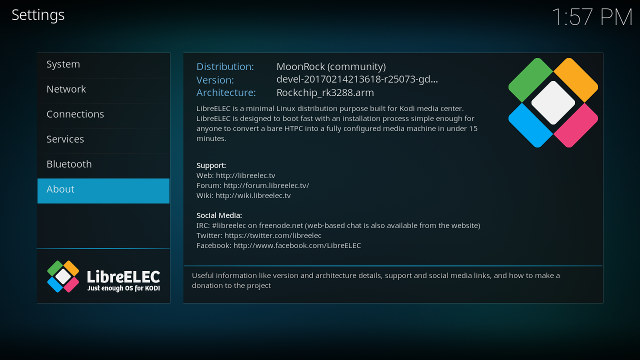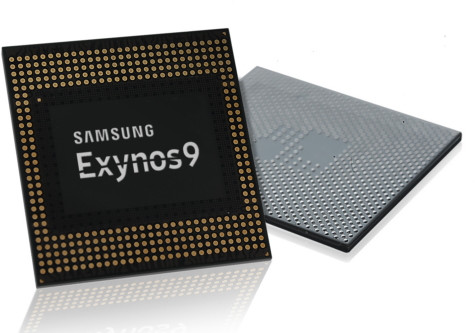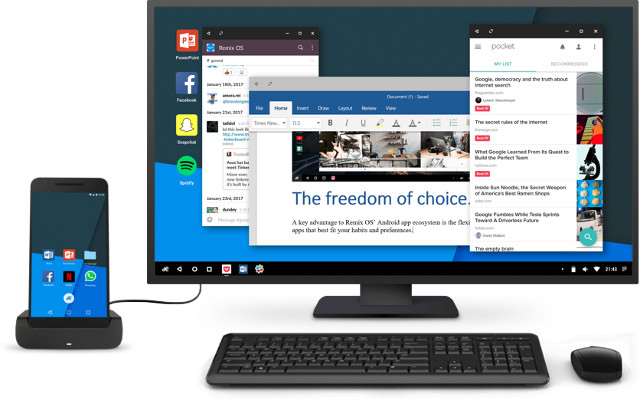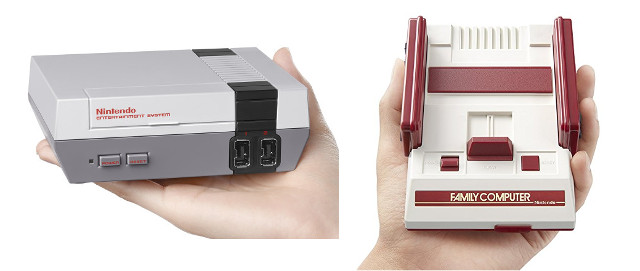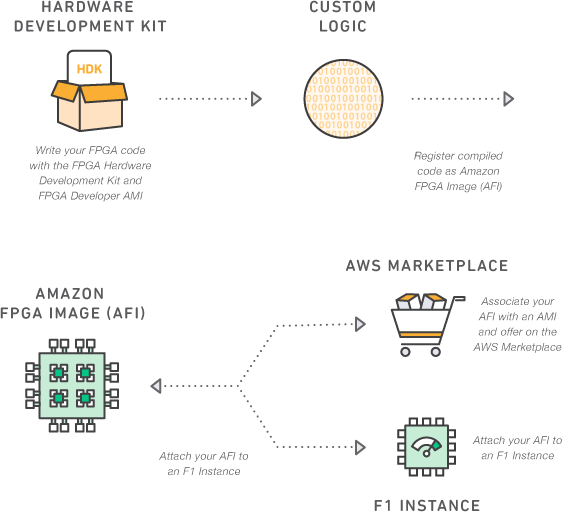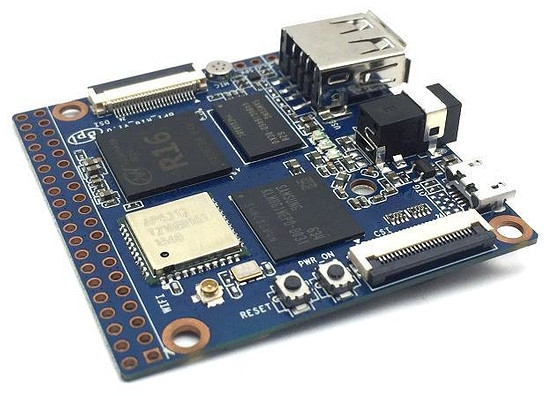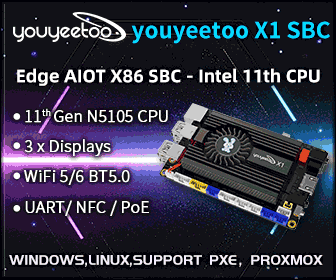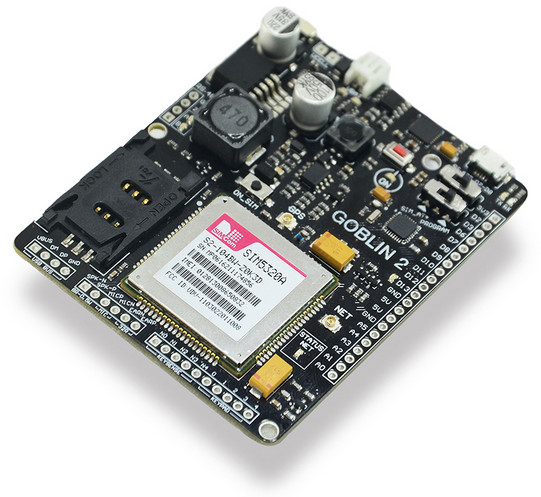Rockchip RK3288 may have launched over two years ago, but the quad core 32-bit processor is still much more powerful than many 64-bit platforms on the market, and ASUS selected the processor for their upcoming – and not officially launched – Tinker Board. The processor was found in several Android TV boxes, but people also installed Linux on the devices, and ported Kodi 14.2 Linux to RK3288 with hardware video decoding back in 2015. The news here is that Omegamoon has recently started working on LibreELEC 8.0 port for RK3288 with a Linux 4.4 kernel, and tested it on Ugoos UT3+ TV box. Full HD movie playback is said to be smooth, Ethernet, and sound work, but WiFi still needs to be worked on. Omegamoon has released an update.img firmware which can be flashed with upgrade_tool in Linux, or AndroidTool in Windows, replaces whatever operating system you have on the […]
Samsung Launches Exynos 9 Series 8895 SoC with Custom ARMv8 Cores, Mali-G71 GPU, Gigabit LTE Modem, 10nm FinFET Process
Samsung Electronics has just announced the launch of its latest Exynos application processor (AP), with Exynos 9 Series 8895 octa-core processor with four second generation custom designed ARMv8 CPU cores, and four Cortex A53 cores, as well as a Mali-G71 3D GPU, and a Gigabit LTE modem. The LTE modem delivers data throughput at up to 1Gbps (Cat.16) downlink with 5CA (five carrier aggregation), and 150Mbps (Cat.13) uplink with 2CA. The SoC also embeds an “advanced MFC” (multi-format codec) for recording and playback at up to 4K UHD at 120 fps, a Vision Processing Unit for video tracking, image process, and machine vision technology, and another processing unit allows for mobile payments using iris or fingerprint recognition. Exynos 8895 is also the first application processor manufactured with 10-nanometer (nm) FinFET process technology and improved 3D transistor structure, which according to Samsung, allows for up to 27% higher performance, while consuming […]
Remix Singularity to Bring Remix OS Desktop Optimized Operating System to Android Smartphones
Android is great to consume content, but is a real pain to create content, as operation like copy/paste and multi-tasking you take for granted in desktop OS like Ubuntu or Windows are not well supported in Android. But Jide Technology saw an opportunity and many users are familiar with Android on their phones and tablets, and some on Android TV boxes, so they created Remix OS, based on Android, but with desktop optimization such as better multi-tasking, multi-window support, improved mouse and keyboard integration and so on. They started with a tablet, and then also worked on ARM based Android TV boxes and laptops, as well as support for x86 computers. The company has now unveiled Remix Singularity which aims to bring Remix OS to smartphones in a similar manner to Windows Continuum or Ubuntu Convergence. But beside just mobile and desktop (PC) modes, Remix Singularity will also allow to […]
RetroArch Game Emulator Can Now Run on Nintendo NES Classic Mini and Famicom Mini
Nintendo NES Classic Mini is a smaller replica of Nintendo NES with an HDMI output, and powered by an Allwinner R16 SoC. Nintendo has released a model with the same or similar hardware, but a different case for the Japanese market called Famicom Mini. Those two consoles are pre-loaded with about 30 games, and in theory you can’t add any more games. But as everything with an Allwinner processor, it can be hacked to match your needs, and people have already managed to add games using the micro USB connection and Hakchi2 script. What’s new is that you can now run RetroArch on the consoles, and probably on other Allwinner R16 platform such as the upcoming Banana Pi BPI-M2 Magic board, provided it’s connected to an LCD display. To achieve that, first you’ll need to install the latest Hakchi 2.12 tool with the procedure, clearly explained (with an older version) […]
Amazon EC2 F1 Instances Put Xilinx Virtex Ultrascale+ FPGA Boards into the Cloud
We’ve covered several board and modules based on Xilinx Zynq Ultrascale+ MPSoC such as the AXIOM Board and Trenz TE0808 SoM, both featuring ZU9EG MPSoC, with systems selling for several thousands dollars. But I’ve been informed you may not need to purchase a board to use Virtex UltraScale+ FPGAs, which are different from Zynq UltraScale+ since they lack the ARM CPU & GPU and normally feature a more capable FPGA, as last November, Amazon launched a developer preview of F1 instances giving access to this type of hardware from their cloud. That’s the FPGA hardware you’ll be able to access from one F1 instance: Xilinx UltraScale+ VU9P manufactured using a 16 nm process. 64 GB of ECC-protected memory on a 288-bit wide bus (four DDR4 channels). Dedicated PCIe x16 interface to the CPU. Approximately 2.5 million logic elements. Approximately 6,800 Digital Signal Processing (DSP) engines. Virtual JTAG interface for debugging. […]
Banana Pi BPI-M2 Magic is an Allwinner R16 Development Board with LCD and Camera Interfaces
Allwinner R16 is a quad core Cortex A7 processor found in Nintendo NES Classic Mini game console, but so far there was no development board based on the processor apart from Allwinner Parrot board that does not appear to be for sale. But Banana Pi has designed their own R16 development board, and released some information about BPI-M2 Magic board. Banana Pi BPI-M2 Magic specifications: SoC – Allwinner R16 quad core ARM Cortex-A7 processor with ARM Mali 400 MP2 GPU System Memory – 512MB DDR3 Storage – 8 GB eMMC flash (option: 16, 32 or 64GB) + micro SD slot Display Interface – 4-lane MIPI DSI connector Camera Interface – CSI connector supporting up to 5MP sensor, 1080p30 H.265 video capture Video Decoder – Multi-format FHD video decoding, including Mpeg1/2, Mpeg4, H.263, H.264, etc H.264 high profile 1080p@60fps Audio – On-board microphone Connectivity – Wifi 802.11 b/g/n, Bluetooth 4.0 LE […]
STMicro Introduces STM32 LoRaWAN Discovery Board & I-NUCLEO-LWAN2 STM32 LoRa Expansion Board
STMicroelectronics and Mouser have launched two new products with LoRa connectivity: STM32 LoRaWAN Discovery Board with an STM32L072 ARM Cortex M0+ MCU and Semtech SX1276 transceiver, and I-NUCLEO-LRWAN1 STM32 LoRa expansion board for STM32 Nucleo boards with an STM32L052 MCU and Semtech SX1272 radio transceiver. STM32 LoRaWAN Discovery Board B-L072Z-LRWAN1 STM32L0 Discovery kit LoRa specifications: LoRa Module – Murata CMWX1ZZABZ-091 with MCU – STM32L072CZ ARM Cortex -M0+ MCU @ 32 MHz with 192 KB Flash memory, 20 KB RAM, 20 KB EEPROM SX1276 transceiver supporting LoRa, FSK, GFSK, MSK, GMSK and OOK modulations Antennas – SMA and U.FL RF interface connectors, 50 Ohm SMA RF antenna Debugging – On-board ST-LINK/V2-1 supporting USB re-enumeration capability Expansion – Arduino Uno V3 connectors Misc – 7x LEDs, 2x push-buttons (user and reset) Power supply – Via USB bus or external VIN/3.3 V supply voltage or batteries; 3xAAA-type-battery holder for standalone operation (on the […]
Goblin 2 Arduino Compatible IoT Board Includes SIM5320A 3G & GPS Module
Veracruz, Mexico based Verse Technology has recently launched Goblin 2, an Arduino compatible IoT development, based on Atmel/Microchip ATmega328P MCU, featuring a built-in SIM5320A 3G and GPS module, supporting RS-485 communication, and providing 3.3/5 and 24V power output. Goblin 2 board specifications: MCU – Microchip Atmel ATMega328P AVR MCU @ 16 MHz with 1KB EEPROM, 32kB Flash, 2kB SRAM Wireless connectivity via Simcom SIM5320A USB 2.0 module: Dual-Band UMTS/HSDPA 900/2100MHz Quad-Band GSM/GPRS/EDGE 850/900/1800/1900MHz 1x SIM card slot High accuracy 16 channel GPS Expansion I/Os 6x ADC input with 10 bits resolution 10x digital in/out including 5 PWM RS-485 protocol @ 10Mbps for up to 256 nodes on the bus Header to Keypad, microphone and speaker for SIM I/O Misc – 8 LEDs for power, battery, networking, RS485, UART, plus one user LED; Power switch, RS-485 /GPIO switch, program / SIM AT+ switch Power Supply – 5V via micro USB port, […]


